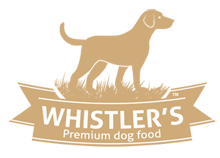The Benefits of Omega-3 for Your Dog's Skin and Coat
Omega-3 fatty acids are well known for their numerous health benefits, not just for humans but also for dogs. These essential fatty acids, primarily found in fish oils and certain plant-based oils, play a critical role in promoting overall health, with a particular focus on your dog’s skin and coat. Incorporating Omega-3 into your dog's diet can significantly improve the quality of their fur, reduce inflammation, and contribute to healthier skin.
What Are Omega-3 Fatty Acids?
Omega-3 fatty acids are a type of polyunsaturated fat that are essential for your dog’s well-being. Since dogs, like humans, cannot produce Omega-3 on their own, they must obtain it through their diet. The three main types of Omega-3s beneficial for dogs are:
Eicosapentaenoic Acid (EPA): Found in cold-water fish like salmon, sardines, and anchovies.
Docosahexaenoic Acid (DHA): Also found in fish oils, DHA supports brain development and function, in addition to promoting healthy skin.
Alpha-Linolenic Acid (ALA): Found in plant-based sources such as flaxseed and chia seeds. While less potent than EPA and DHA, ALA is still valuable for overall health.
Omega-3 for Healthy Skin
One of the most well-known benefits of Omega-3 fatty acids is their ability to nourish your dog's skin. Dogs can suffer from various skin issues such as dryness, allergies, or inflammation, which can lead to itchiness, redness, or even infections. Omega-3 fatty acids have anti-inflammatory properties that can help soothe irritated skin, making them an ideal supplement for dogs prone to skin allergies or sensitivities.
Anti-Inflammatory Benefits: Omega-3s can help reduce inflammation caused by conditions such as dermatitis, eczema, and other allergic reactions. By soothing inflamed skin, they help alleviate itchiness and irritation, making your dog more comfortable.
Moisturising Effect: Omega-3s contribute to the skin's natural oil production, preventing dryness and scaling. This is particularly beneficial during the winter months when dry air can lead to flaky, irritated skin.
Improved Skin Barrier: Omega-3s strengthen the skin's natural barrier, helping it retain moisture and defend against allergens or environmental irritants.
Omega-3 for a Shiny Coat
A glossy, vibrant coat is one of the most visible signs of a healthy dog. Omega-3 fatty acids can work wonders in improving the texture, shine, and overall condition of your dog’s fur.
Enhancing Fur Quality: By nourishing the hair follicles, Omega-3s help produce stronger, shinier hair. They improve the texture of your dog’s coat, making it feel softer and silkier to the touch.
Preventing Hair Loss: Dogs suffering from poor diet or skin conditions may experience excessive shedding or bald patches. Omega-3s strengthen the hair shafts, preventing breakage and reducing hair loss.
Reducing Dullness: If your dog’s coat appears dull or lackluster, it could be due to nutritional deficiencies. Omega-3 supplementation can restore the coat’s natural luster, giving your dog a healthy, radiant appearance.
Omega-3 and Allergy Relief
Dogs with food or environmental allergies often struggle with chronic itching, hot spots, and inflamed skin. Omega-3 fatty acids can help relieve these symptoms by reducing the body's inflammatory response to allergens. Regular intake of Omega-3s has been shown to help alleviate symptoms of seasonal allergies, flea allergies, and food sensitivities, allowing your dog to feel more comfortable and enjoy life without constant scratching.
Sources of Omega-3 for Your Dog
To ensure your dog gets enough Omega-3s, consider adding one of the following to their diet:
Fish oil supplements: These are the most direct source of EPA and DHA, which provide maximum benefits for your dog's skin and coat.
Flaxseed oil: This is a plant-based source of ALA, which can be a good option for dogs with sensitivities to fish products.
Chia seeds: Another plant-based source, chia seeds can be sprinkled over your dog’s food to boost their Omega-3 intake.
Final Thoughts
Omega-3 fatty acids are a powerhouse of nutrients that can dramatically improve your dog's skin and coat health. Whether you want to alleviate skin irritation, enhance the shine of their coat, or simply give your dog a nutritional boost, adding Omega-3-rich foods or supplements to their diet can make a significant difference. Always consult your veterinarian before introducing new supplements to your dog's diet to ensure you are providing the appropriate dosage for your dog's size and health needs.
